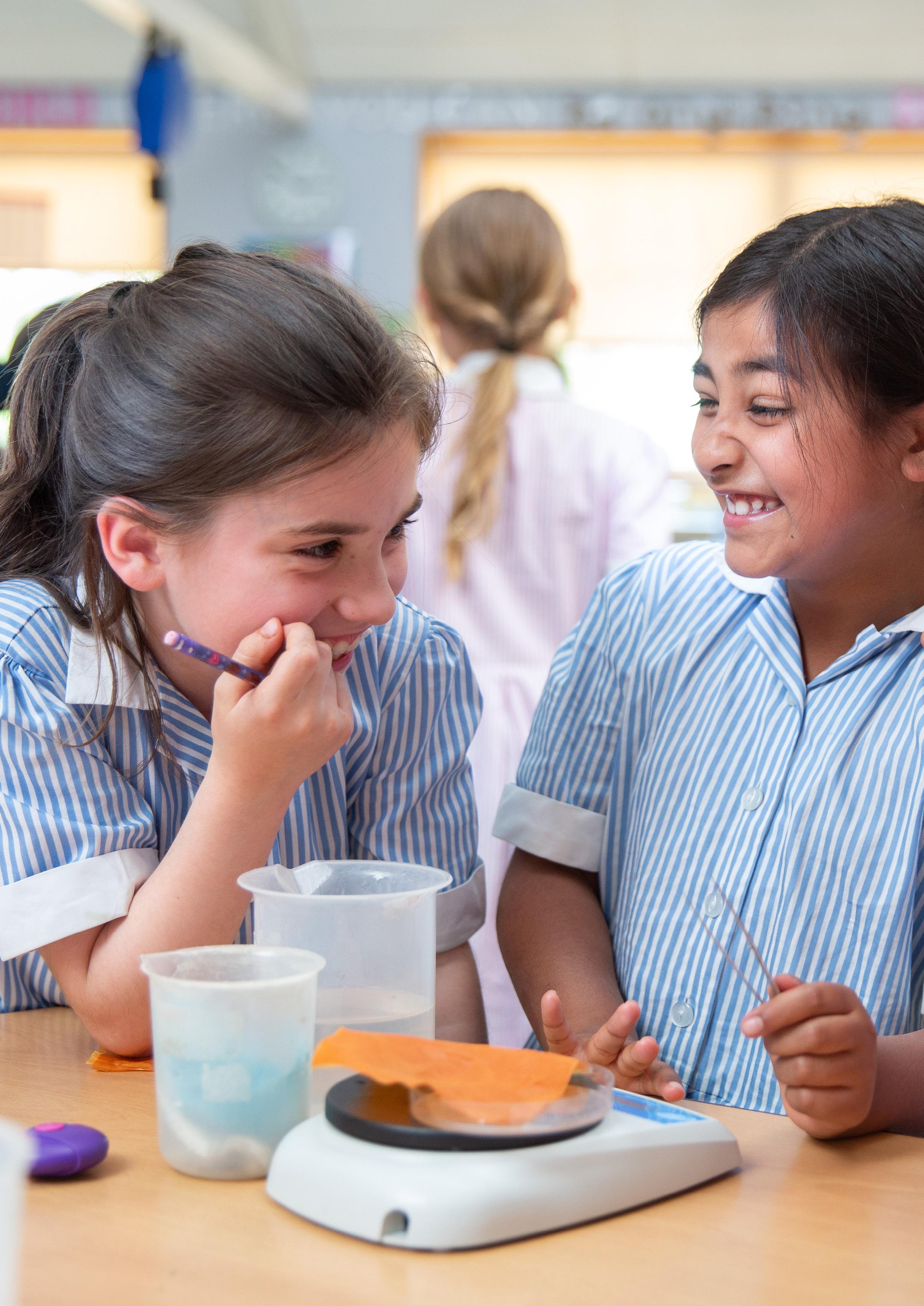

THE GOOD SCHOOLS GUIDE
WHAT THE GOOD SCHOOLS GUIDE SAYS
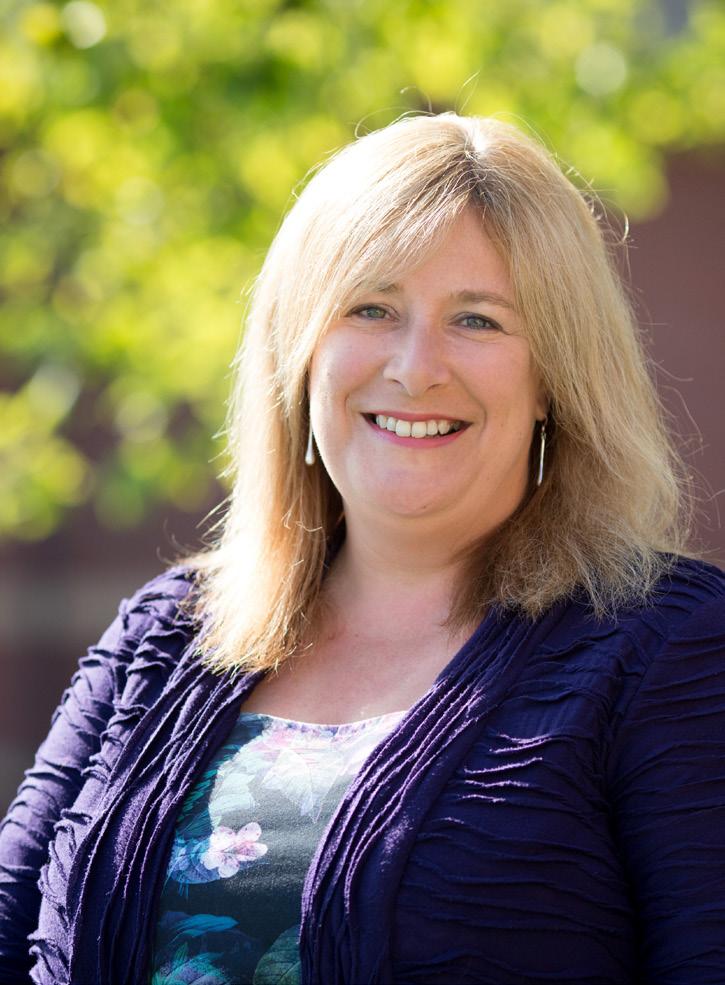
‘I’m very aware what an independent education gave me.’
Head
Since 2016, Hellen Dodsworth, previously co-head at Coten End Primary School, Warwick. Raised in Staffordshire, attending Lichfield Cathedral School, then boarded at Abbots Bromley on a music scholarship. When her father, a vicar, moved south of Birmingham, she settled in the area and met her husband in a choir – they live just down the road from the school with their two sons, both educated within the Warwick Foundation. In another life, she might have pursued a career in music, but shudders at the thought of all that competition. Sticks to singing for fun these days, ‘although I have been known to bring my flute into school!’
Teaching career not on her radar until she started on a music and education degree at Warwick – ‘I hadn’t realised I’d be teaching professionally as part of the course but as soon as I tried it, I felt like I’d come home.’ Her first job – in a Birmingham primary school ‘with a lot of complex problems’ – threw her in at the deep end but she ‘loved it’ and 20 years in the maintained sector followed. Kept eagle eye on this headship coming up for grabs – ‘my dream job’ – and pounced when it did: ‘I’m very aware what an independent education gave me.’
Combines leadership presence and strong sense of authority with genuine warmth – ‘Oooh, French bread in your packed lunch, that’s very impressive!’ she grinned at a young pupil we passed on route to lunch. ‘Like the mum for the school,’ say parents. Parents feel they can go to her with any niggle, something she encourages. Pupils have a strong sense of her – ‘very jolly’ and ‘kind’, they say. Her office (neat and tasteful in muted tones) is centrally located, and the fact that our year 6 tour guides asked us if we wanted to ‘pop in to say hi to her’ told us all we needed to know about the genuineness of her open-door policy.
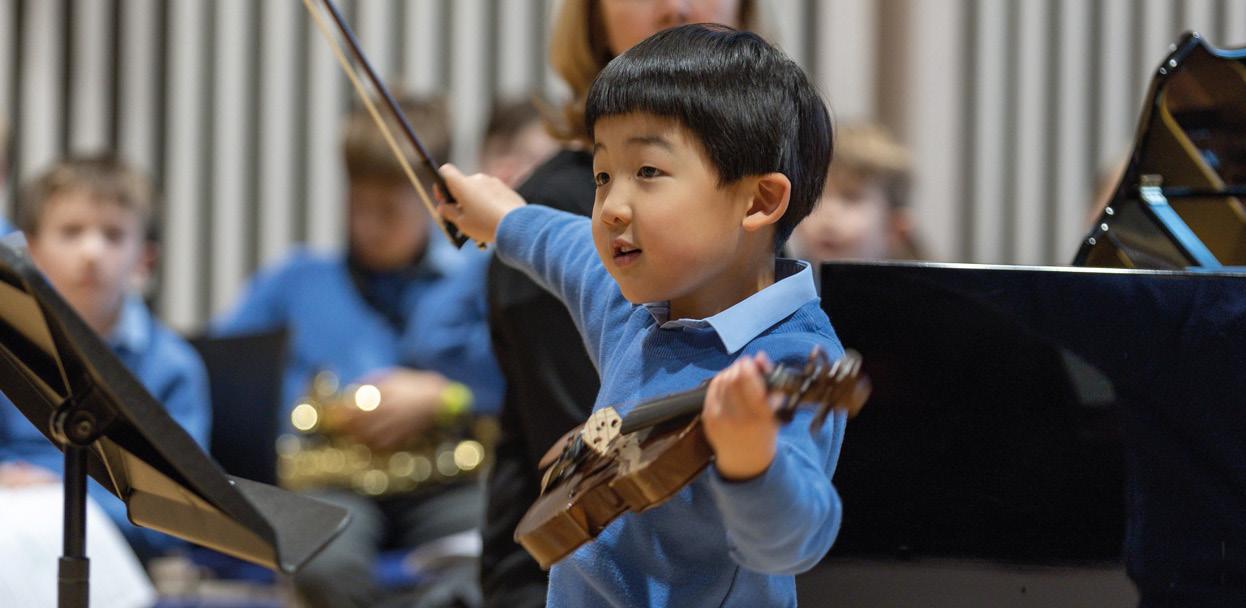
‘Music facilities among the best we’ve seen.’
‘A Skills for Life programme focuses on a new life skill each term Behaviours project gets pupils learning practically about personal
Entrance
Main entry points are nursery, reception and year 3. Up to year 2, academically non-selective, with entrance via a taster day. From year 3 (girls only), assessment morning with tests in English and maths and a presentation on ‘something they bring in to talk about’. School not afraid to say no – ‘We need to know they can thrive in a busy school.’ Some year groups oversubscribed, but increasingly girls apply for year 5 and 6 ‘with an eye to the senior school’ – expect even more rigour to application process at this stage ‘as we have less time to work our magic with them’. Three to four classes per year group in pre-prep, max of 20 children in each; two to three classes per year group in prep, with 18-24 children in each.
Exit
Boys leave at 7 and nearly all go to Warwick Junior School, although offer is probationary if there are concerns that the school might not be best fit. Girls stay till 11 and are offered a place at King’s High during the spring term of year 5 –they still sit the entrance exam, ‘for benchmarking purposes and academic scholarships’ (again, unless there are any concerns about a girl flourishing at the senior school, in which case the entrance exam may be used to determine the place, as would be the case with external applicants). While the vast majority of girls go to King’s High (93 per cent in 2022), two or three a year head off to the local grammars – ‘always for financial reasons, and even then some come back,’ says school.
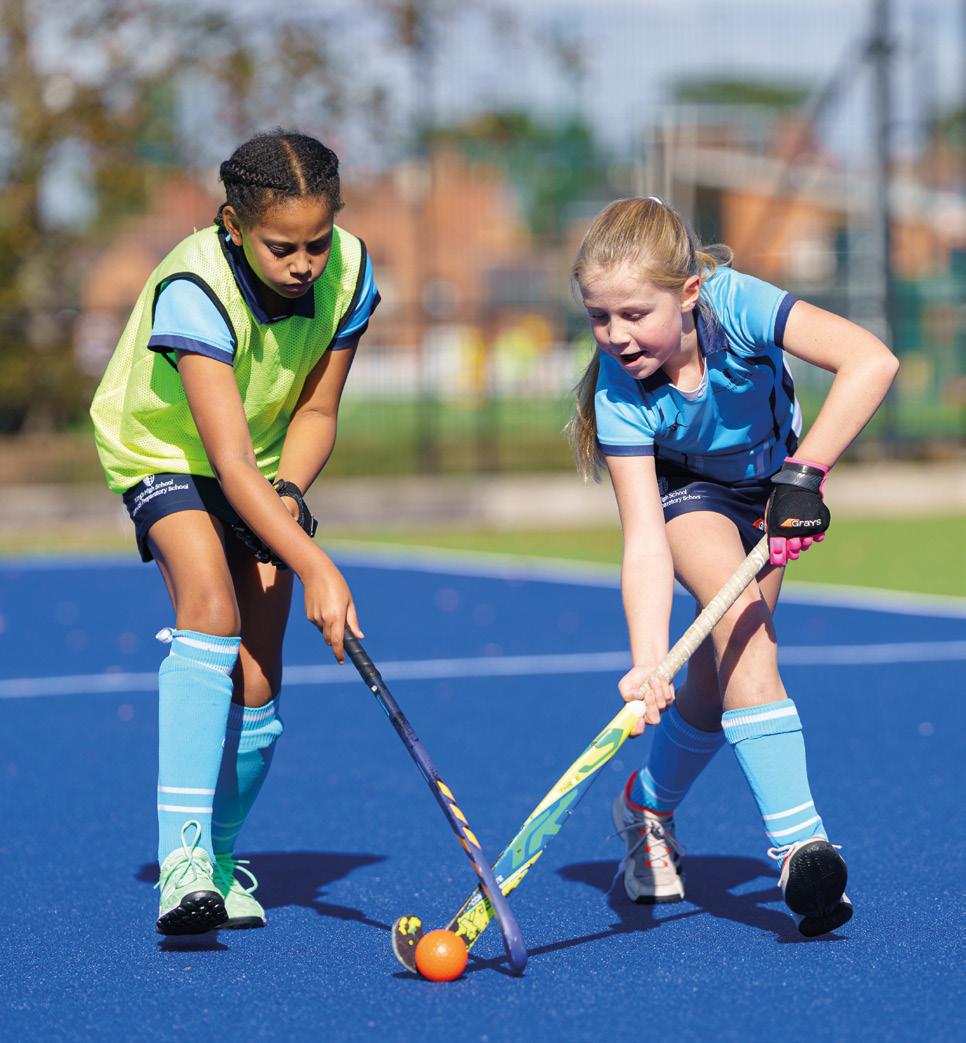
Our view
Vast majority of parents are in for the long haul. The school is, after all, part of the Warwick Foundation – Warwick Prep, Warwick Junior School, Warwick School and King’s High Warwick – with all four schools entwined in ethos and also sharing the same vast site on the fringes of Warwick. Though each school feels distinctive, parents see them as ‘very much part of a whole’ and breathe audible sighs of relief at not having to rethink schools, let alone reapply, further down the line. Not to mention all the benefits of shared (don’t make the mistake of saying ‘borrowed’, as we did!) facilities including world-class music centre, professionally equipped theatre (which attracts touring companies) and stunning sports amenities. ‘There are good links between the pupils too,’ said a parent. In 2021, The Kingsley School in Leamington Spa joined the foundation but retains its own identity and admissions process.
Campus itself is arguably a bit soulless but once inside the prep building, friendliness and vibrancy take over. Appealing themed noticeboards at every turn – birds of prey, Picasso-style class portraits, nature photo competition entries etc. ‘The bee picture won but the bee stung her straight afterwards!’ a passing pupil informed us dramatically. These boards, the colourful classrooms and blue carpets throughout, help transform this modern, purpose-built two-storey block into something much cosier, with children clearly at home in their surroundings.
Our tour kicked off in a reception class where it was carpet time. No sooner had the teacher posed a question than tiny hands shot up this way and that, their sky blue sweaters melding into the carpet. ‘What are you doing here?’ asked some children excitedly in a neighbouring class when they spotted our year 6 guides, which says something about the pupils’ easiness with older year groups, as well as the lighthearted sense of fun that moulds lessons here. Not that they lack focus – a quick prompt from the teacher brought them swiftly back on track to the serious matter of kicking ‘k’s. In a year 1 class, pupils were being given a rundown of the day ahead: phonics, maths, snack, science, prayers, lunch, more lessons, then clubs – of which all pupils do at least one, with staples including chess, plasticine pals, squirrels choir, rugby tots, mindfulness, pop and street dance and jewellery making. Sentence formation was the topic in year 2, with more sing-song voices and bouncy enthusiasm from the mainly young white teachers we came across (head later assured us that there are some male teachers, albeit mainly in the PE department, plus a good age mix, though ethnic diversity remains lacking, unlike with the pupil cohort).
term – currently empathy – and a Warwick schools-wide
Protective personal safety,
self-esteem, resilience and confidence building.’
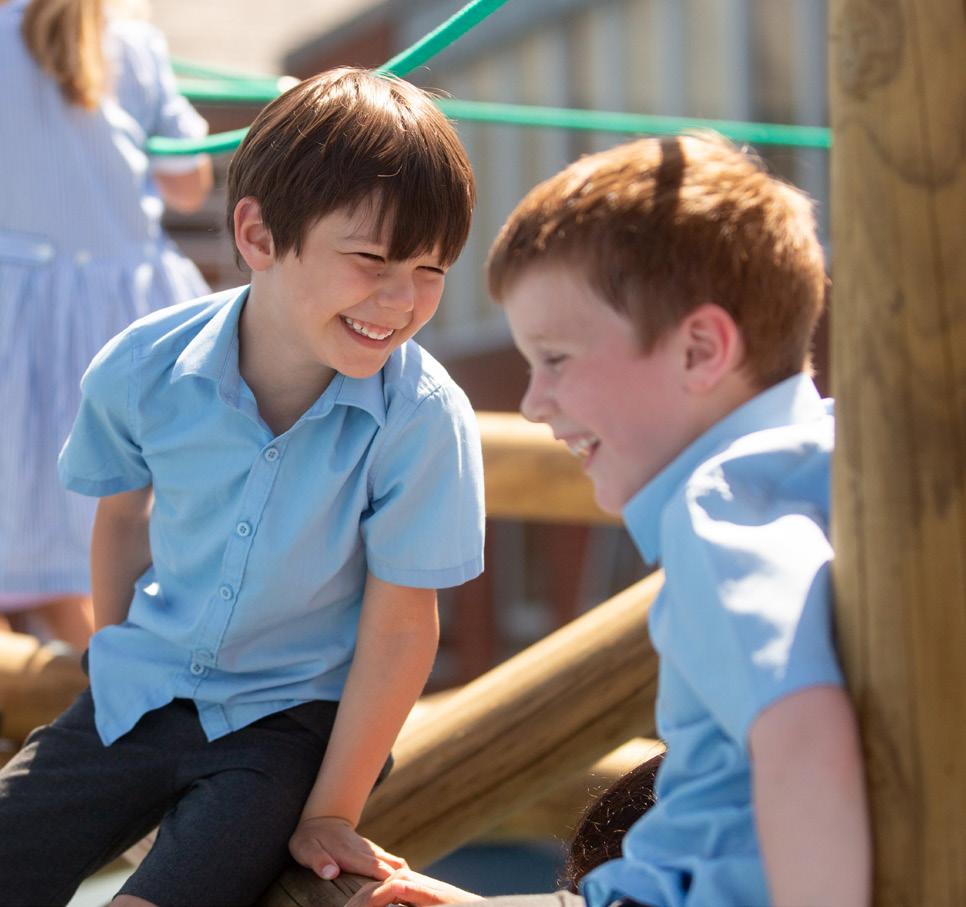
Pace picks up in prep – ‘and you get wooden desks you can open too!’ beamed a pupil proudly. Increasingly specialist teaching at this point – science, art and DT added to PE and music (specialist from nursery) and computing and French (specialist from year 1). ‘High standards academically, but not a hothouse,’ is the general consensus among parents, with head telling us that ‘most children struggle with something at some point so we offer short or long term support to help them master that concept and move on with their learning.’ Parents agree school stands out for identifying any difficulties quickly, then springing into action. Indeed, we saw several one-to-ones (included in fees) going on. SENCo is dyslexia trained and learning support team also includes an early years speech and language specialist. A parent with a dyslexic child told us, ‘They could not have been better both in terms of picking it up, then supporting her, and she has thrived as a result.’ Classroom staff increasingly SEN trained too – a psychologist recently did a training session on autism in girls ‘because it’s less easy to spot’.
Imaginative curriculum – pupils told us about ‘learning songs in maths’, previously a subject identified by head as being ‘too hands-off’. At themed off-timetable weeks the school brings in visitors, runs workshops and gets the children deeper into projects; even the nursery has science and music weeks. There are no dogmatic approaches, with a variety of different reading methods alongside phonics. Two libraries – one for pre-prep and one for prep, the latter is due a revamp. Certainly no shortage of reading in classrooms – we saw year 3s immersed in their books. Year 4s were practising for a poetry-themed assembly during our visit and year 6s were designing LED bracelets in the
STEAM room – STEAM is on curriculum for the last two years, ‘although you only get one half-hour lesson a week,’ grumbled a pupil.
French taught from the off – we flicked through some super exercise books (neat writing, advanced vocab, lively worksheets stuck in) in the dedicated languages room. Pupils also told us of French word bingo and other games ‘to keep things interesting’. Spanish taught for the last two terms of year 6, and there’s an optional German club. ‘See the box of plastic discs on the teacher’s desk?’ whispered our guide. ‘Those are full of house points.’ Merits, rewards and house points are hot currency here.
Music facilities among the best we’ve seen. Three-quarters learn an instrument and there’s breadth too, including the harp and organ. Very popular and successful year 2 strings project for all; watch this space for a year 3 wind project along the same lines. Drama falls under the English curriculum, and every year group does a production of some sort, from harvest festival to biggies like the recent Chitty Chitty Bang Bang. Art and DT are specialist and well-resourced departments. Great to see the art teacher merging art and science (paintings of viruses!), with wooden birdfeeders next up in DT.
More sport than when we last visited – cricket, netball, hockey, football, swimming on offer, all with fabulous shared facilities including a pool. And because they share PE staff too, even the youngest get proper coaching. No pigeonholing, so it’s cricket, not rounders, for the girls and plenty of football success for the girls too. School regularly reaches IAPS finals, and although a few parents feel ‘the same old children get picked for the squads’, many others said, ‘not true – they’re so inclusive!’ School says sport is about fostering a love of fitness for life.
New wellbeing room with feelings flashcards and the like – ‘I have a friend who comes here quite a bit,’ said our guide solemnly. A counsellor visits twice a week and works with children and parents, drawing up wellbeing plans if necessary. It is one example of how the school – although large at over 500 pupils – is good at creating the feel of a smaller school. You don’t get that bungling, amateurish, homely feel as you do in some preps, but it does feel like everyone knows everyone else, with pupils taking particular pride in the play leader scheme. A Skills for Life programme focuses on a new life skill each term – currently empathy –and a Warwick schools-wide Protective Behaviours project gets pupils learning practically about personal safety, self-esteem, resilience and confidence building. Lots of reminders of ‘non-negotiables’ (aka rules) seem to keep
things in check behaviourally. Leadership roles could be ‘more fairly distributed’, say some parents.
Wraparound care from 7.45am to 5.45pm, though several parents said the light tea could be healthier (‘too many sausage rolls!’). No complaints on the lunch front, however, and if ever there’s an award for the most patient school staff, please can we nominate the dinner ladies who went out of their way to fill the bellies of some very fussy children in our queue.
Parents – who come from increasingly further afield, including Coventry, south Birmingham and north Oxford –are an aspirational bunch. Tight-knit in some years, less so in others. Don’t assume the over-representation of Jaguars and Land Rovers means it’s a flashy school, warn parents – the company’s HQ is only just down the road ‘and many parents work there!’
Money matters
Fees competitive with local preps. They include SEN support and some clubs (if an external provider is required, that cost is passed on to parents). Before-school care also included, but after-school care costs extra.
The last word
One of the more academic local schools, which has the added benefit of offering a potentially stress-free all-through option so you can avoid the 11+ frenzy. Biggish but manages to feel small, with all the teachers knowing all the children. But the school’s real forte, we felt, was life beyond the classroom: ‘There is always so much going on – academics, sport, music and drama right through to Lego and jewellery making and all the things you wouldn’t expect,’ said a parent.
‘Facilities include world-class music centre, professionally equipped theatre (which attracts touring companies) and stunning sports amenities.’
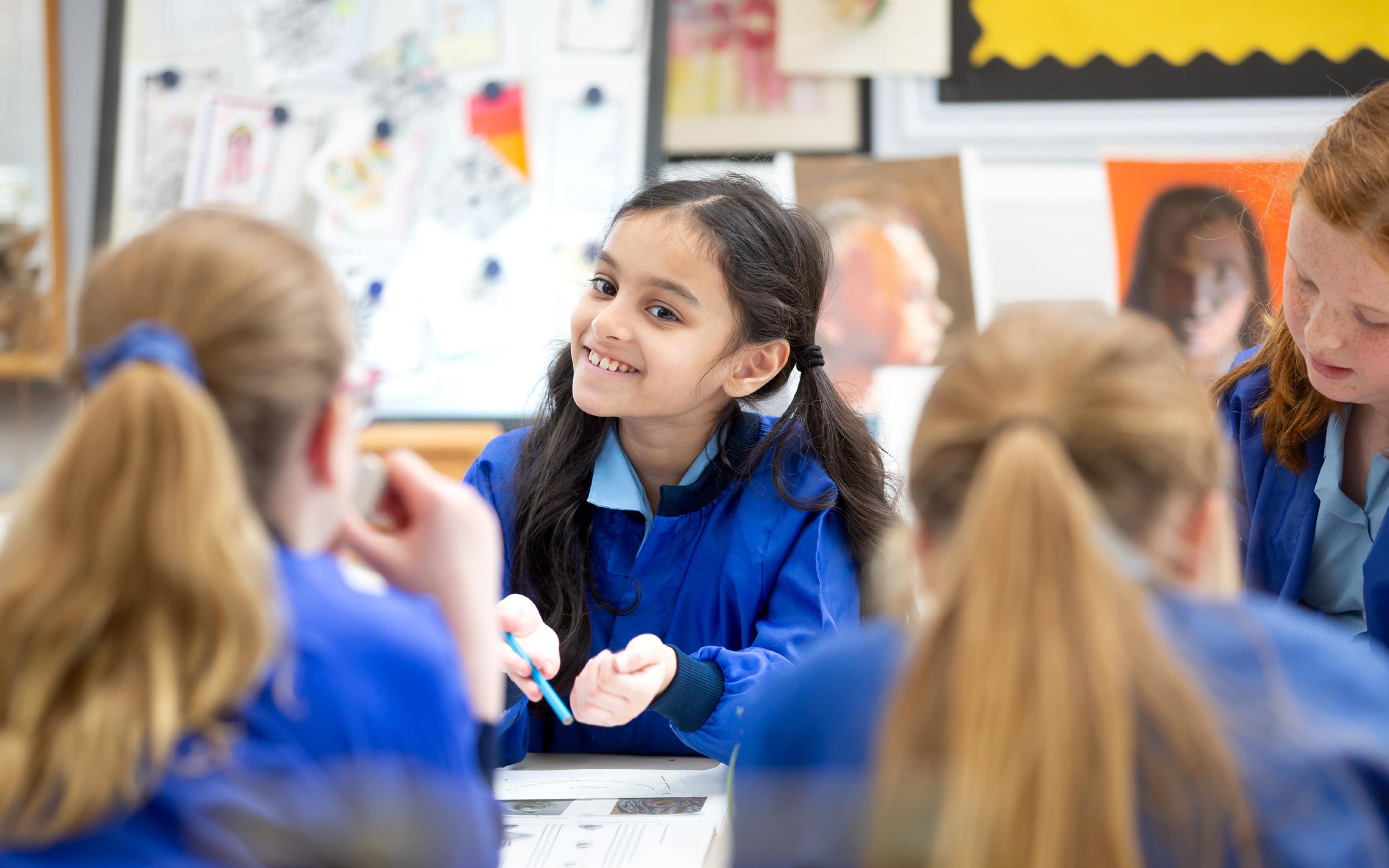
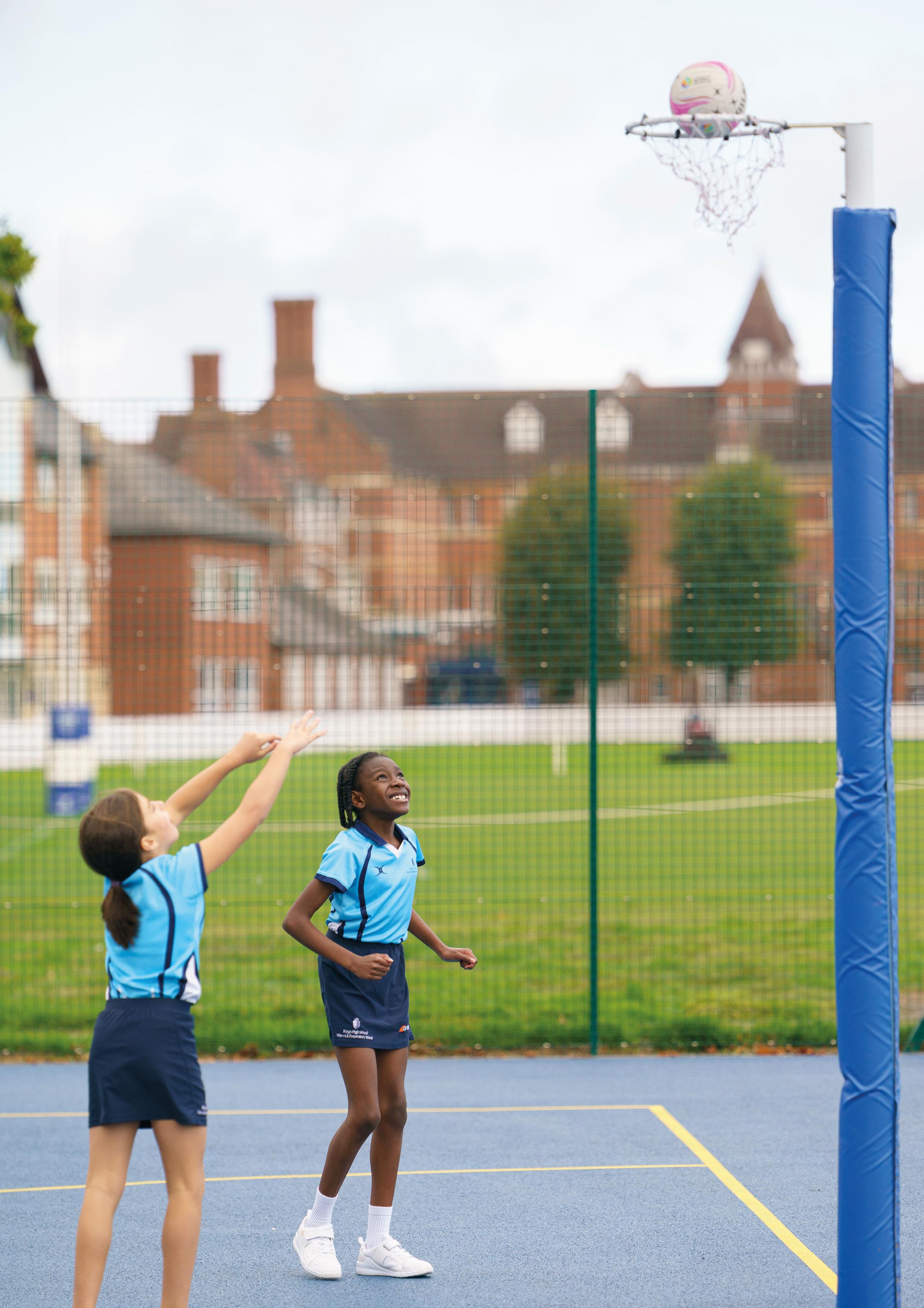
‘Cricket, netball, hockey, football, swimming on offer, all with fabulous, shared facilities including a pool.’
